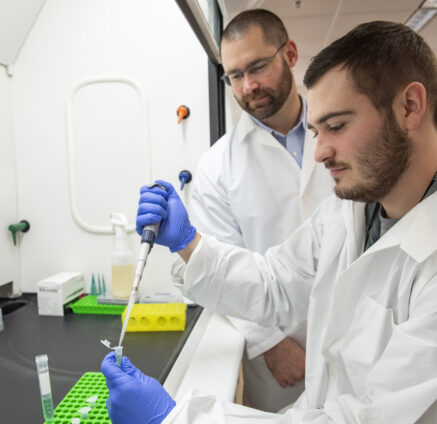PhRMA Foundation Awardee Creates New Tool Toward Rheumatoid Arthritis Precision Medicine
November 10, 20232022 PhRMA Foundation awardee Dr. Fan Zhang published in Nature outlining a novel tissue classification system for rheumatoid arthritis.
Fan Zhang, PhD, a 2022 recipient of the PhRMA Foundation Faculty Starter Grant in Translational Medicine, published a first-author paper in Nature outlining a novel tissue classification system for rheumatoid arthritis that could provide new insights into disease development and progression and identify potential drug targets.
Zhang, an assistant professor of medicine at the University of Colorado Anschutz Medical Campus, is a computational biologist focusing on developing and using computational machine learning methods to study inflammatory diseases like rheumatoid arthritis (RA).
RA is an autoimmune disease in which the immune system mistakenly attacks the body’s tissue, causing joint inflammation and deterioration. This disease affects about 1.3 million Americans, and while it has no cure, there are treatments available to address symptoms, though their effectiveness vary across patients.
Working with a large team of scientists across several universities and institutes, Zhang helped to construct a comprehensive RA tissue reference system of more than 314,000 single cells, which they classified into six groups, referred to as cell-type abundance phenotypes (CTAPs). Researchers hypothesize that patient response to specific treatments may be linked to their cell types, so a more granular understanding of cell types and their roles in inflamed tissue could help better target treatments to patients.
“This model has the potential to serve as a powerful prototype to classify other types of tissue inflammation, including other immune-mediated diseases,” the authors write. “A deeper understanding of the heterogeneity of tissue inflammation in rheumatoid arthritis and other autoimmune diseases may provide new insights into disease pathogenesis and reveal new treatment targets, and key elements of precision medicine.”
The PhRMA Foundation Faculty Starter Grant provides support to promising early-career faculty just starting their own research labs. Zhang joined the faculty at CU Anschutz in January 2022 and started her Computational Omics and Systems Immunology Lab positioned in the Departments of Medicine and Biomedical Informatics.
“The PhRMA Foundation Research Starter Grant has tremendously boosted the establishment of my independent research programs in translational medicine,” Zhang said. “This award encouraged me to strive for excellence in developing powerful computational tools for precision solutions to inflammatory conditions.”

